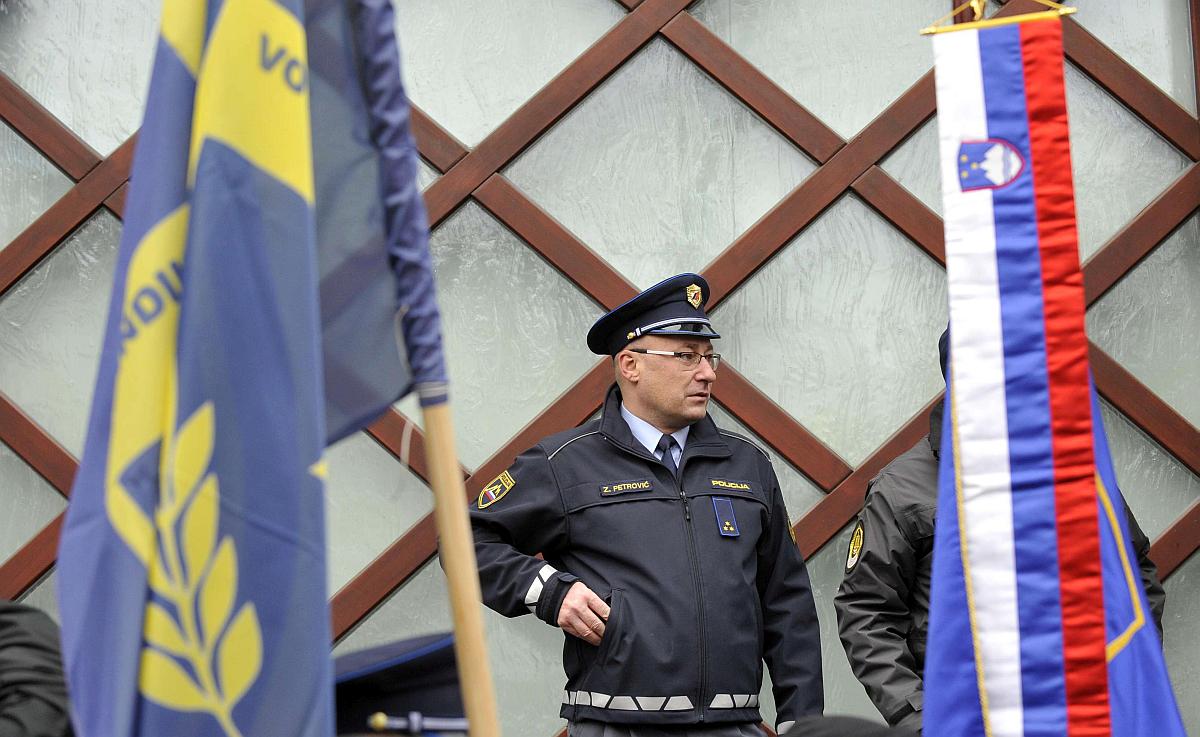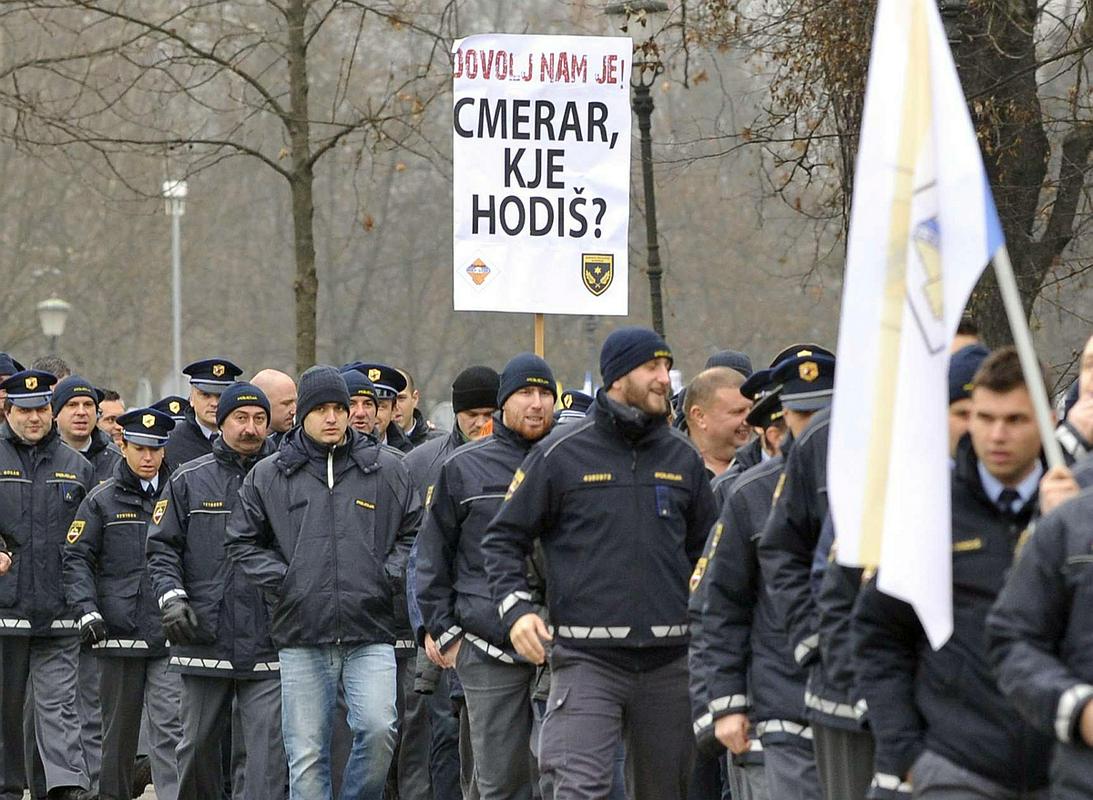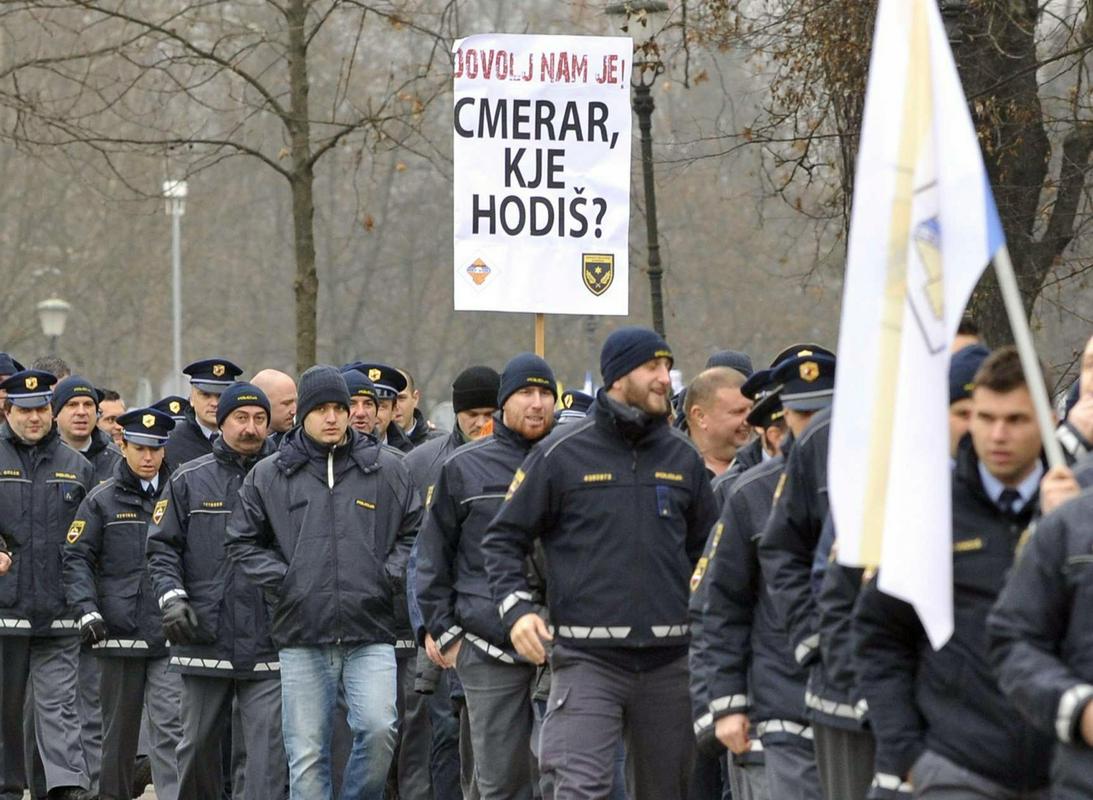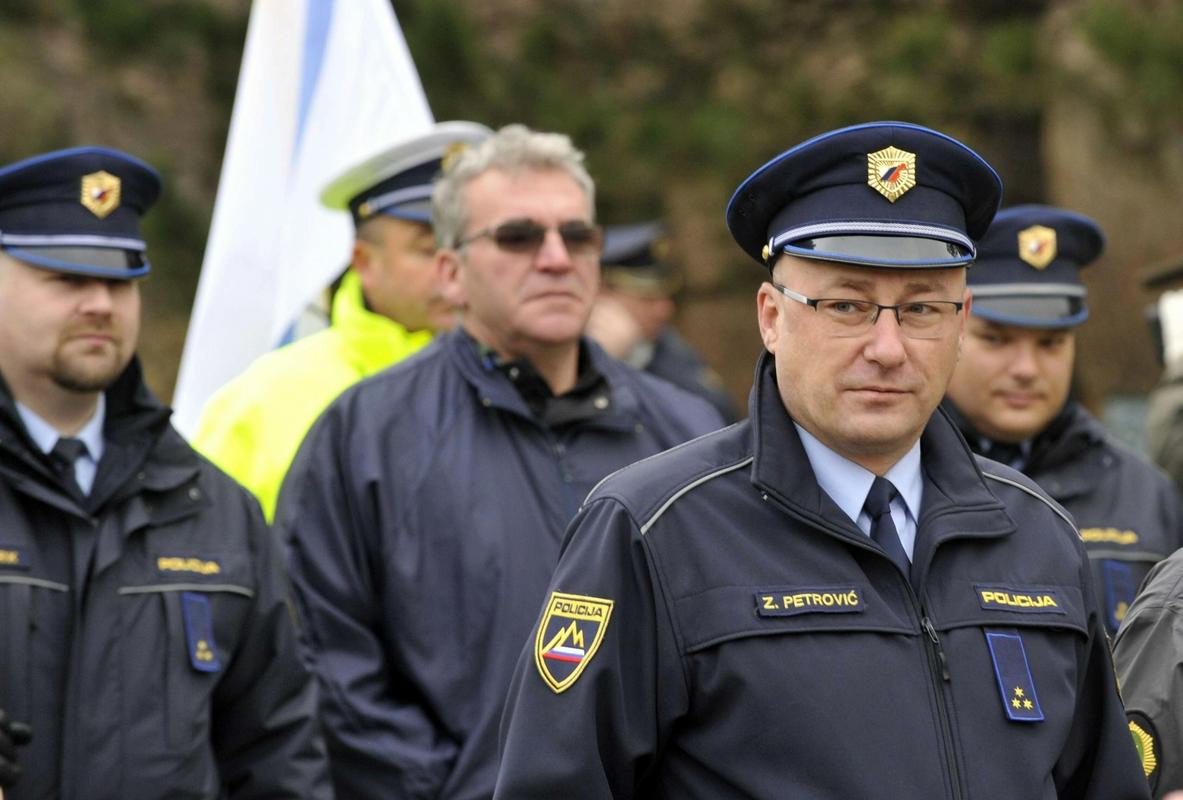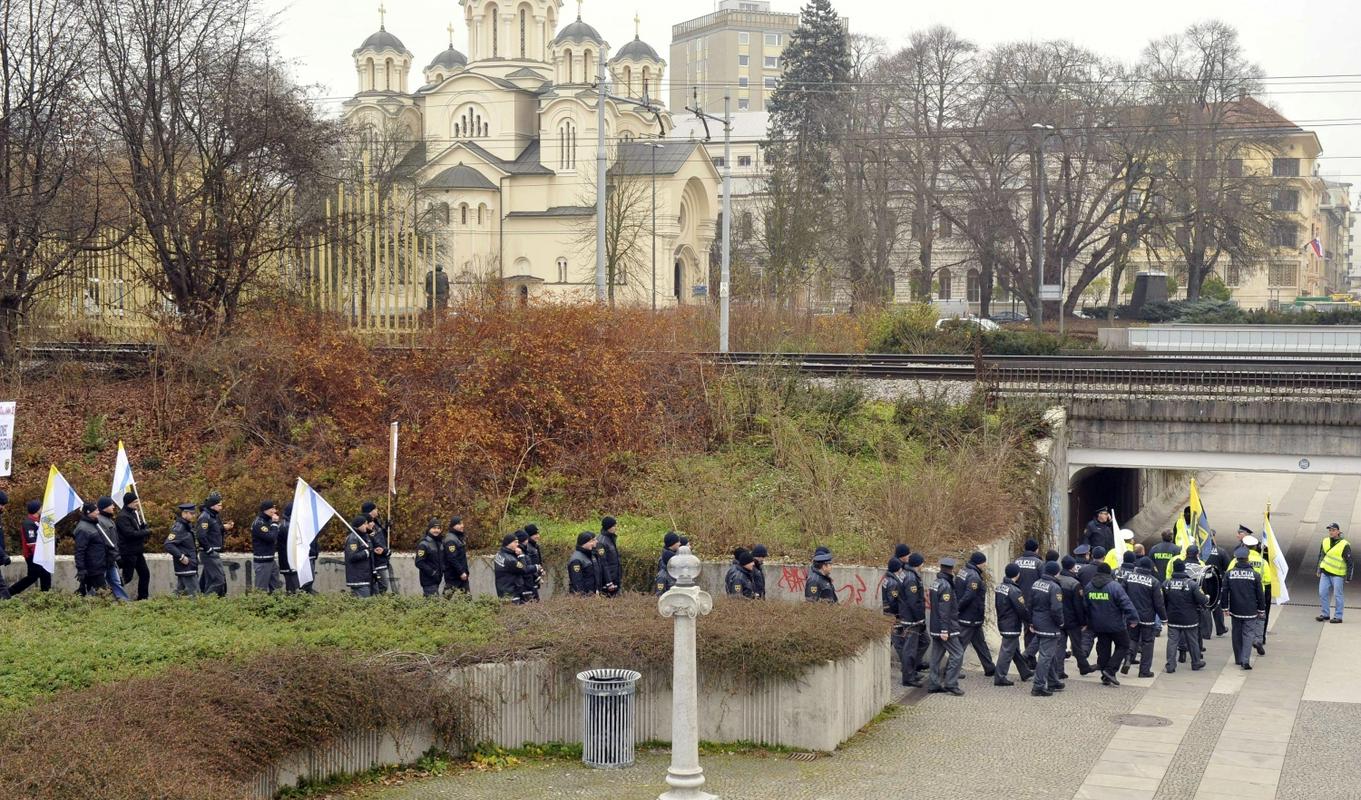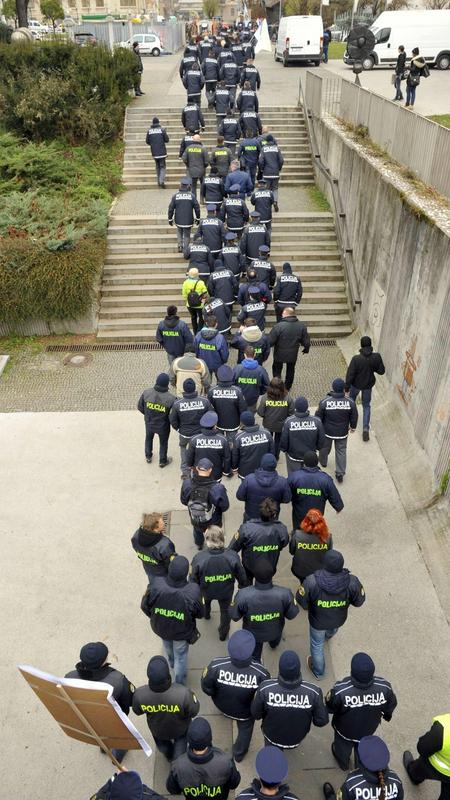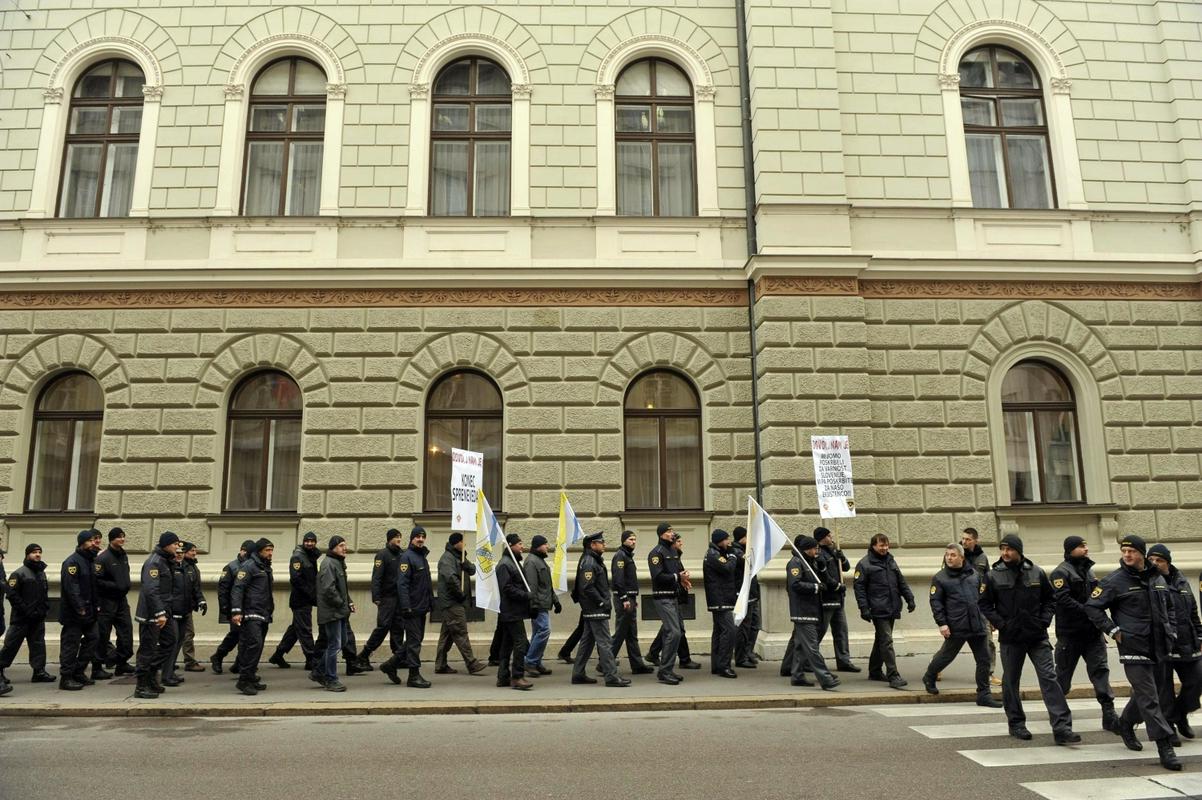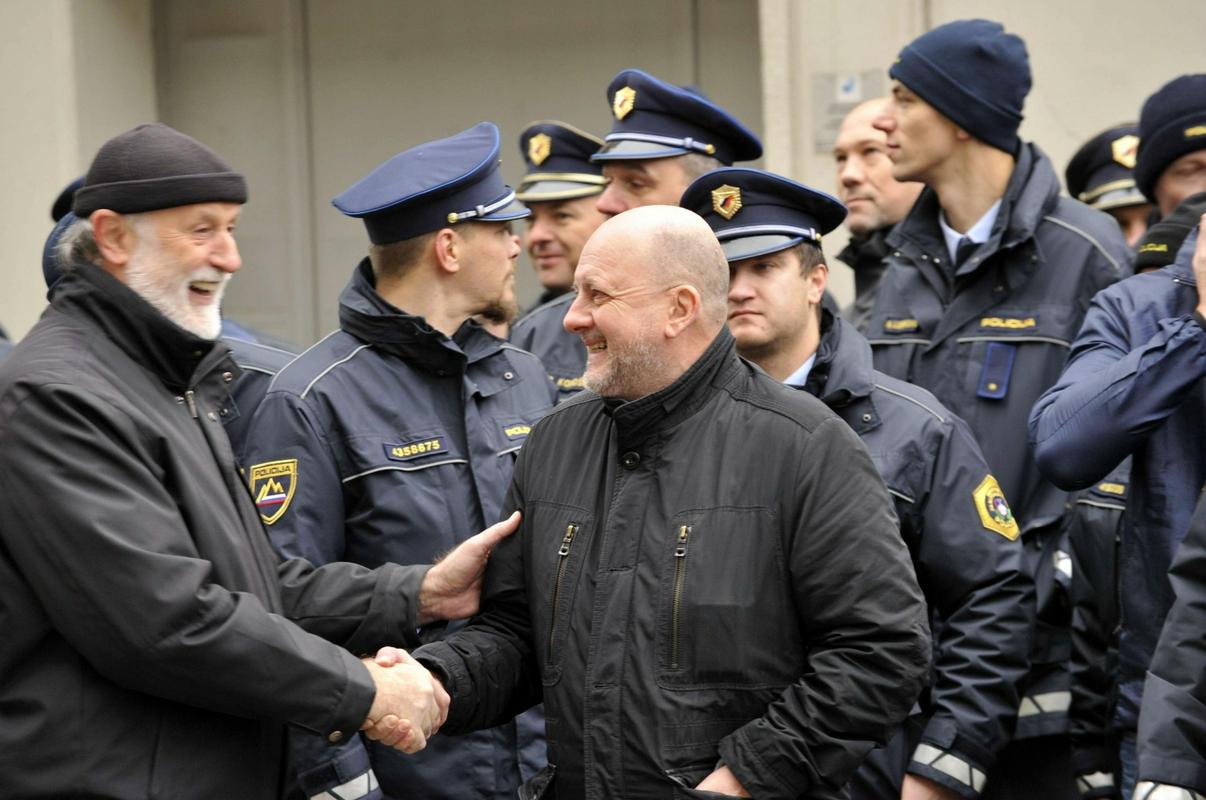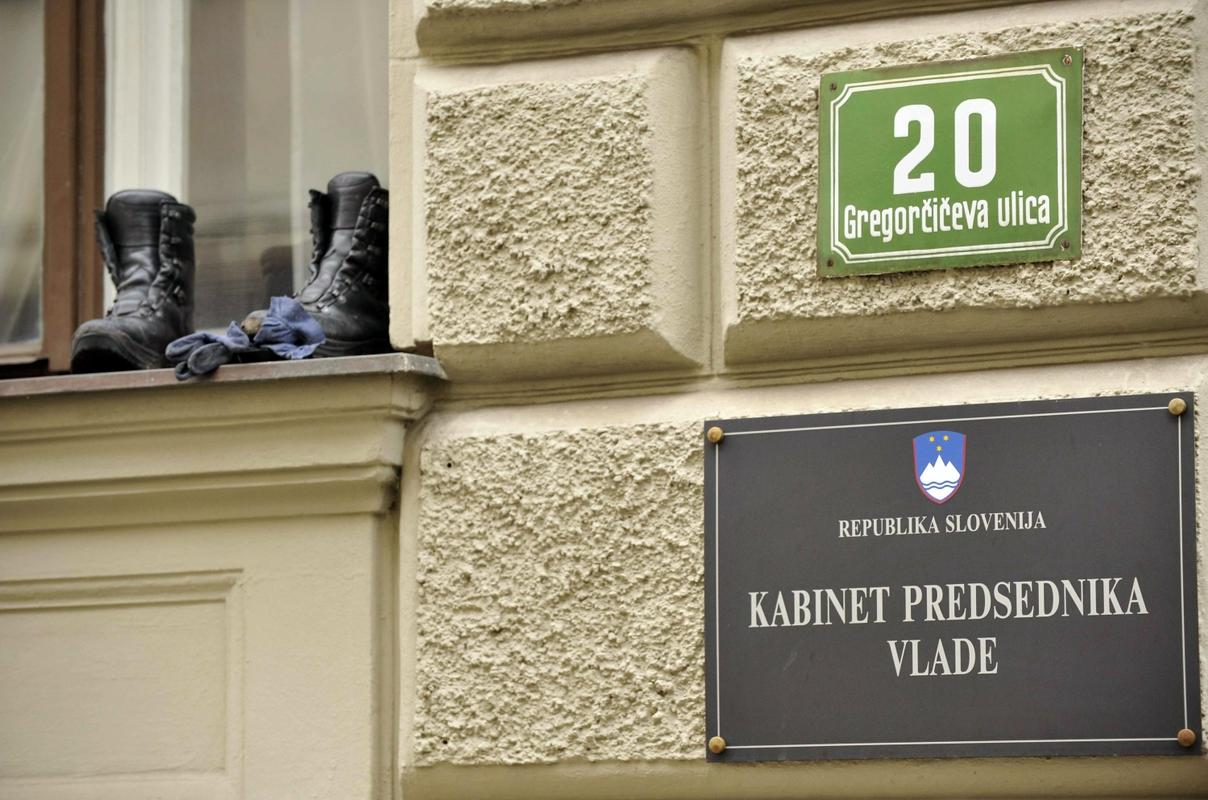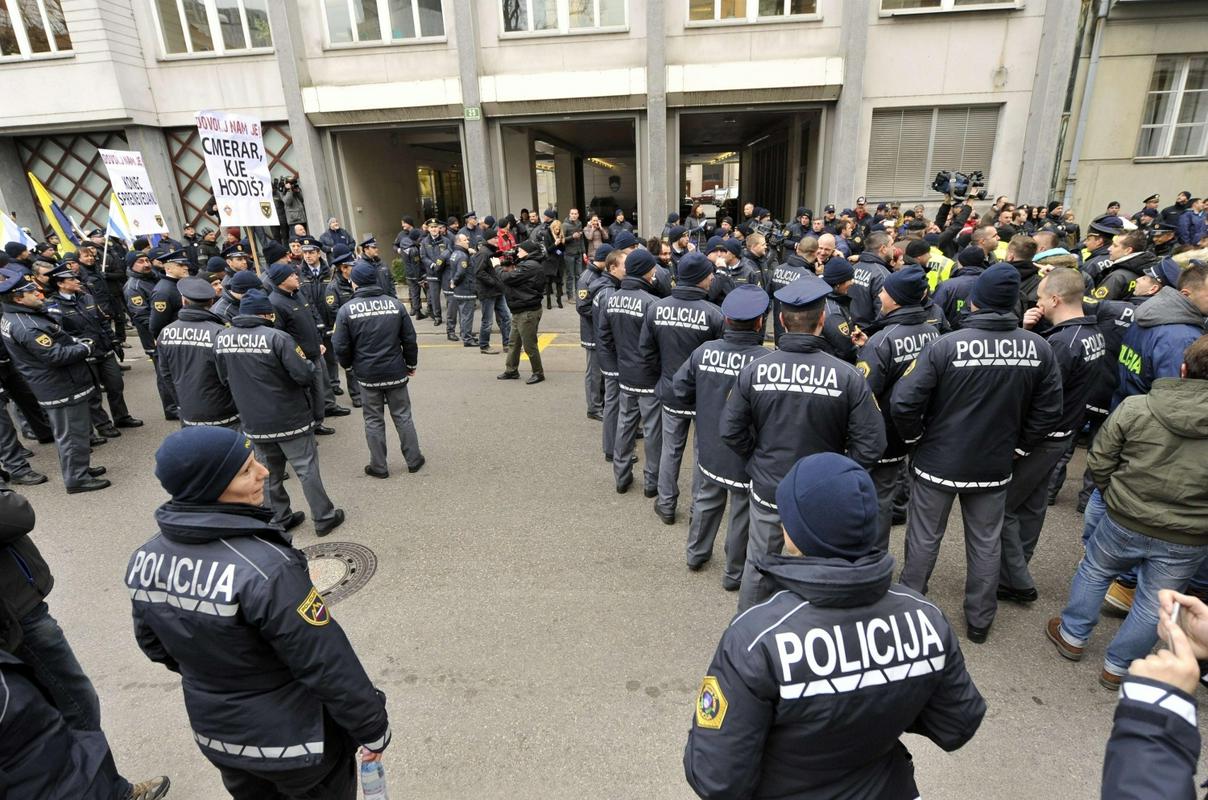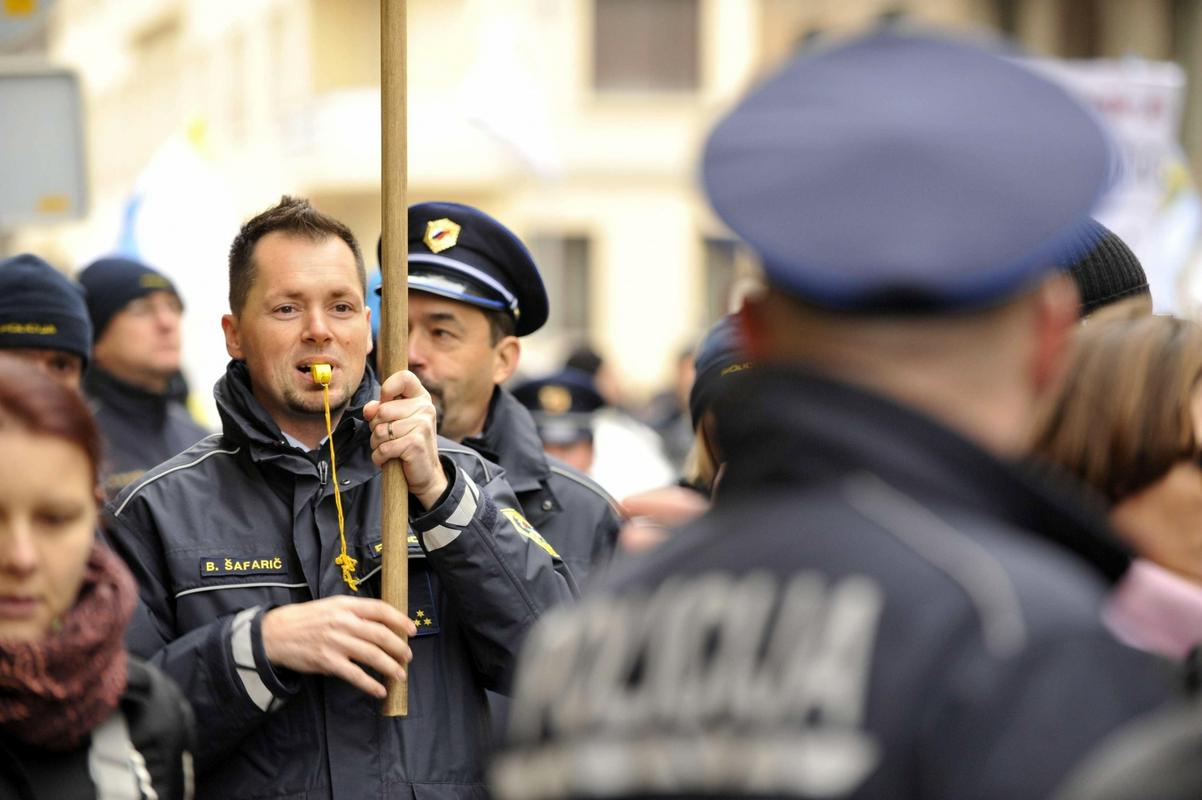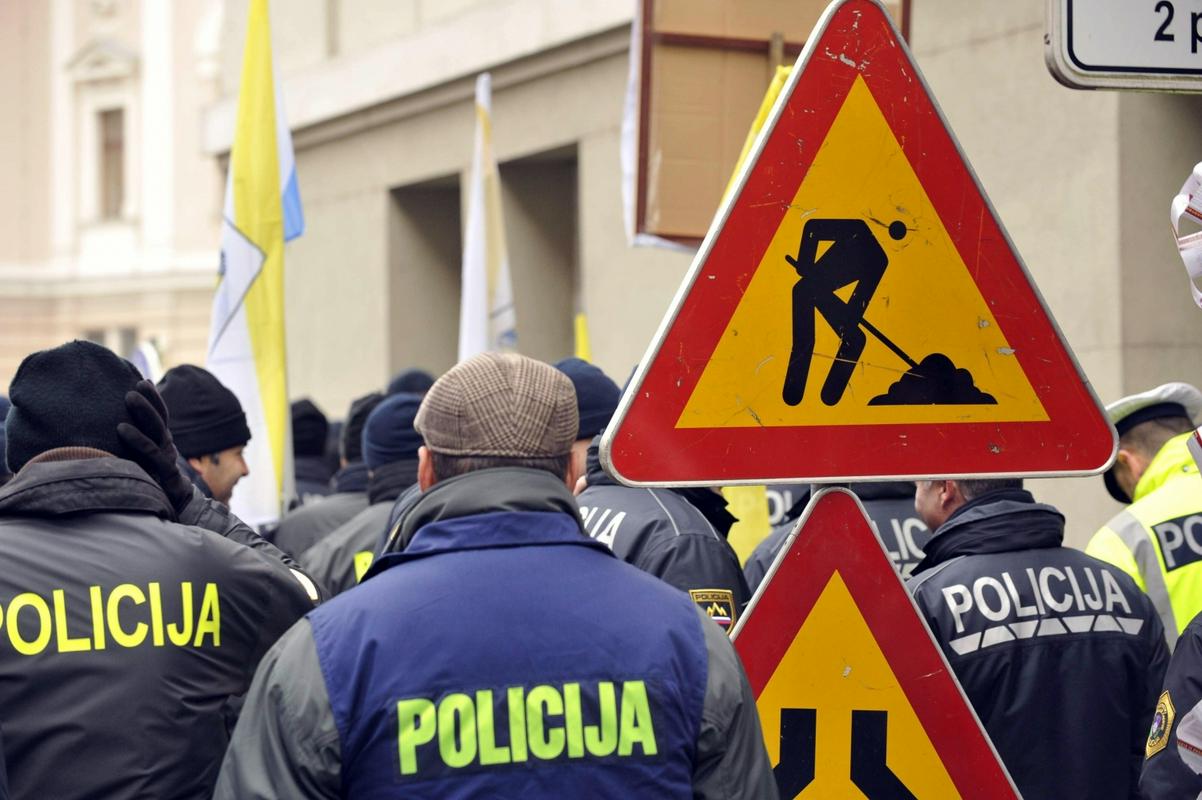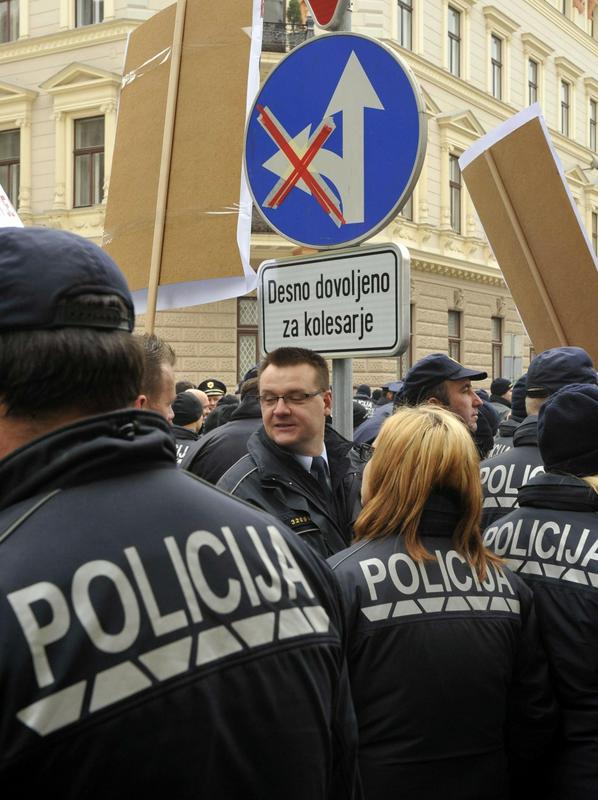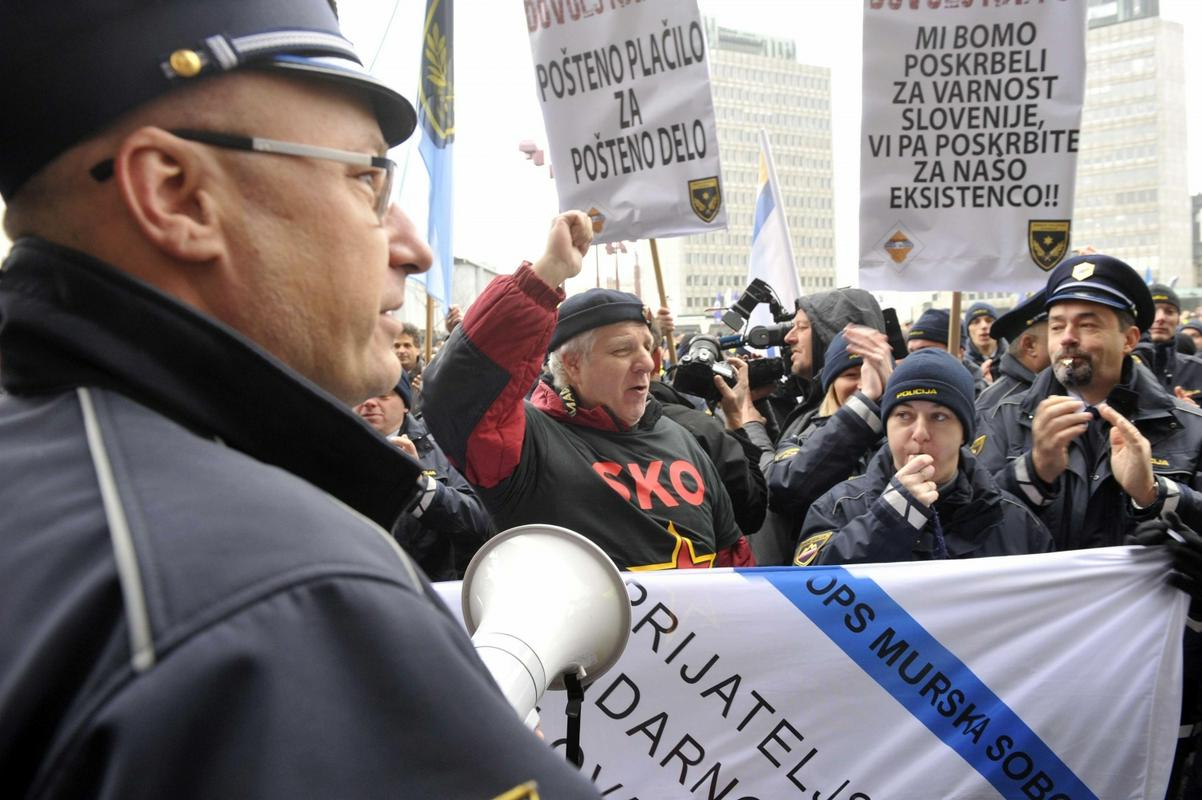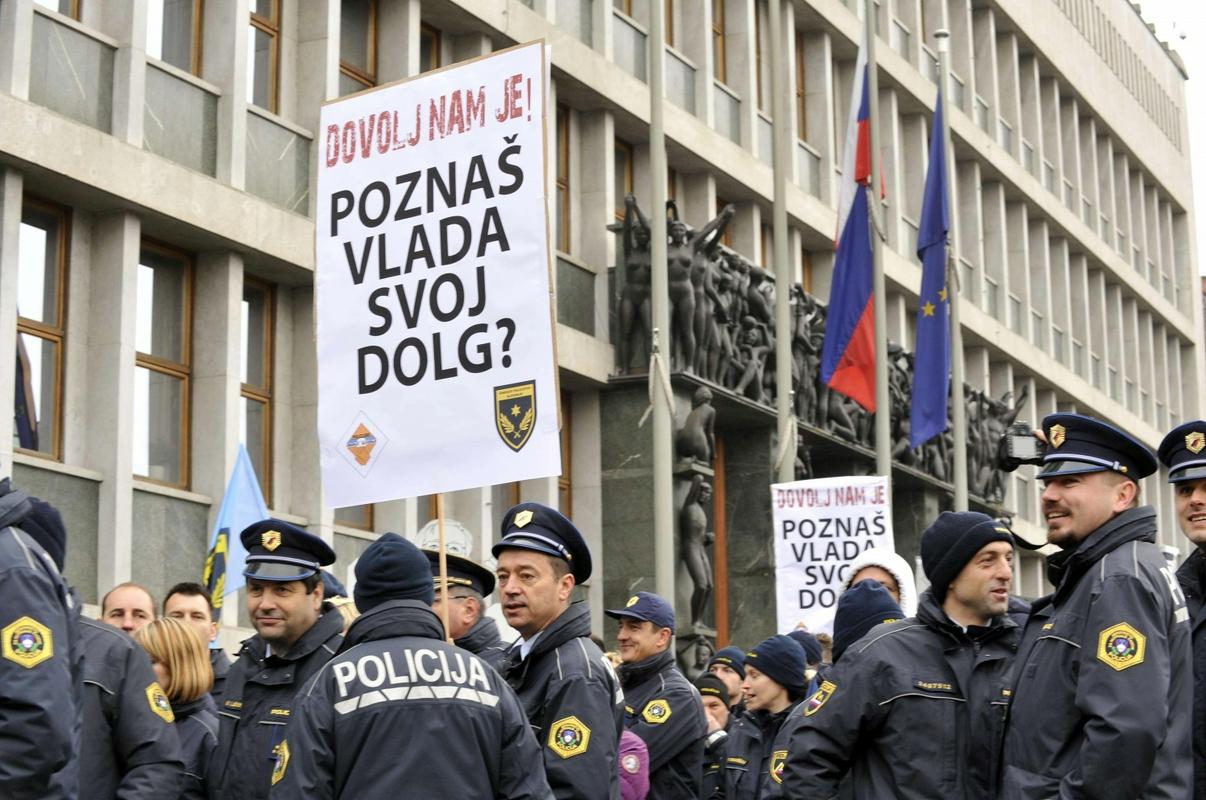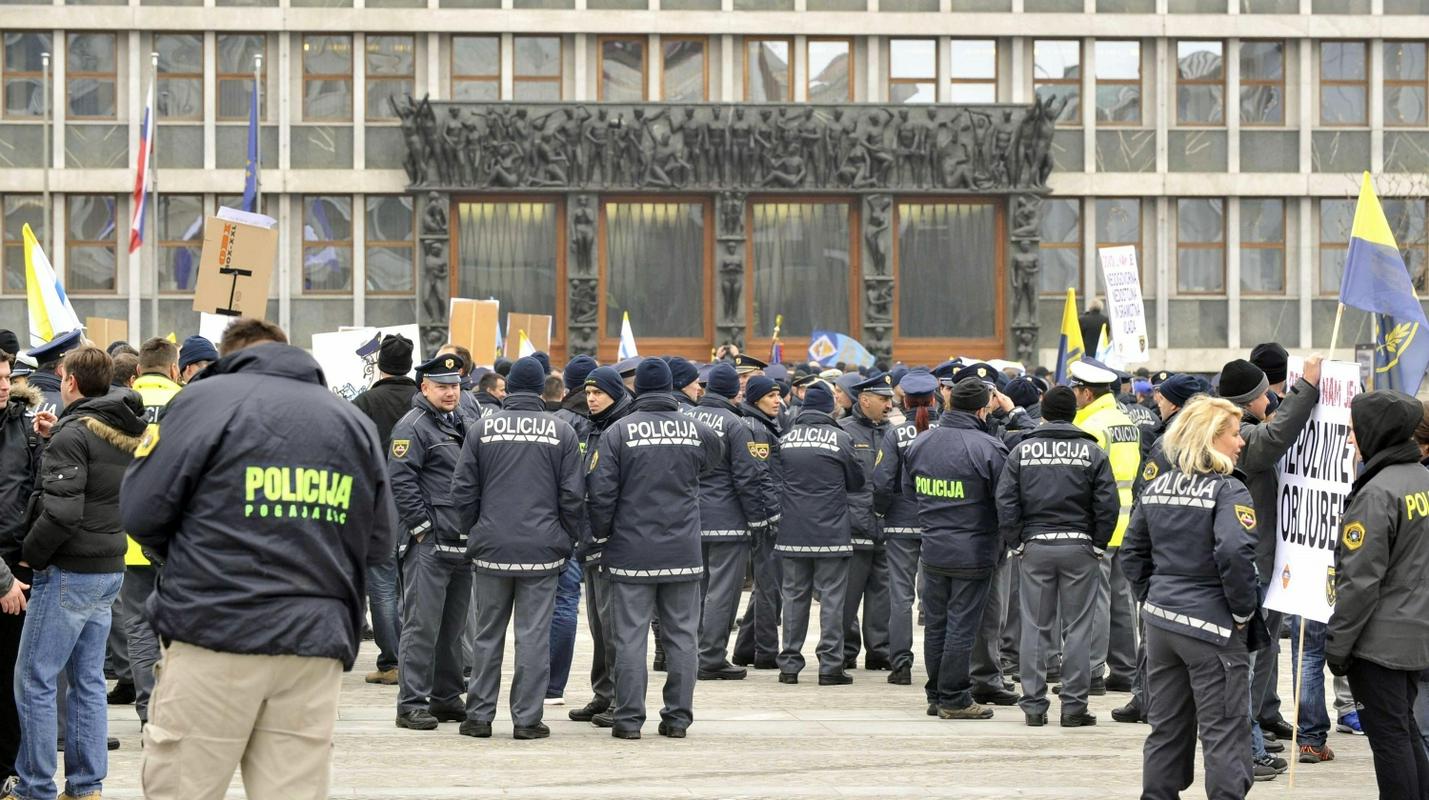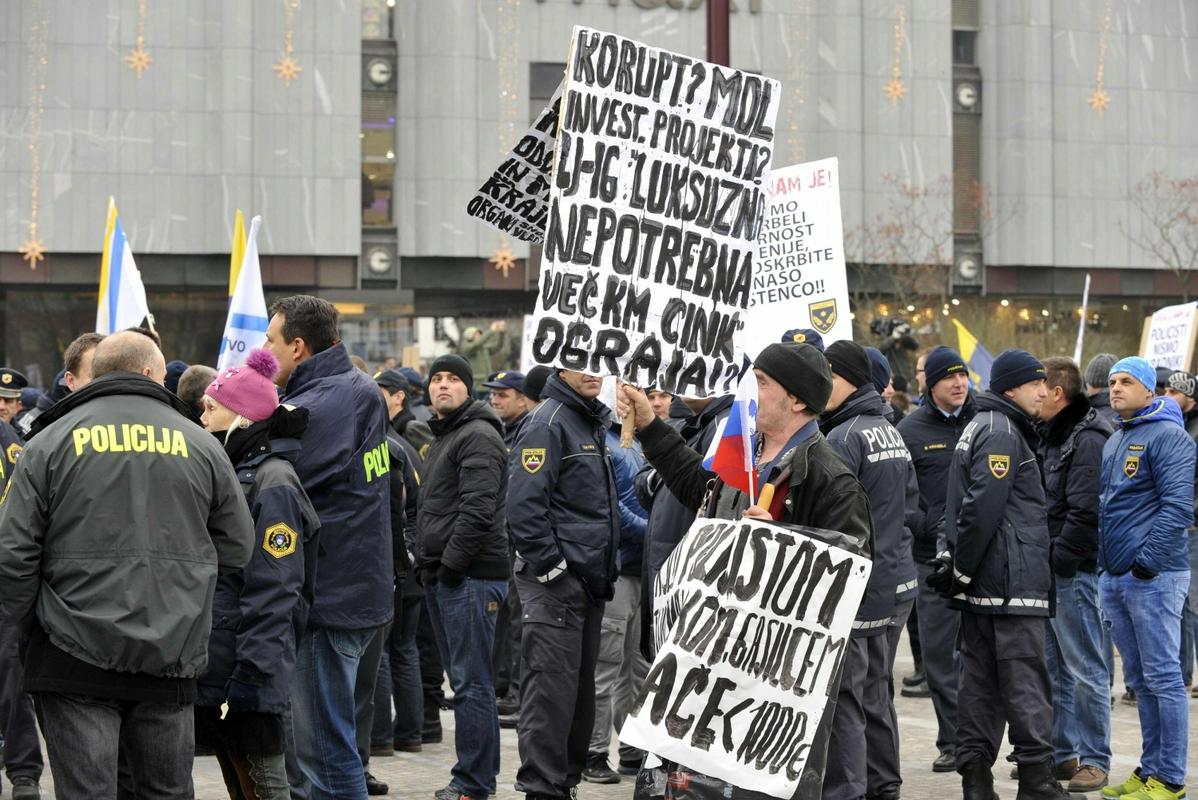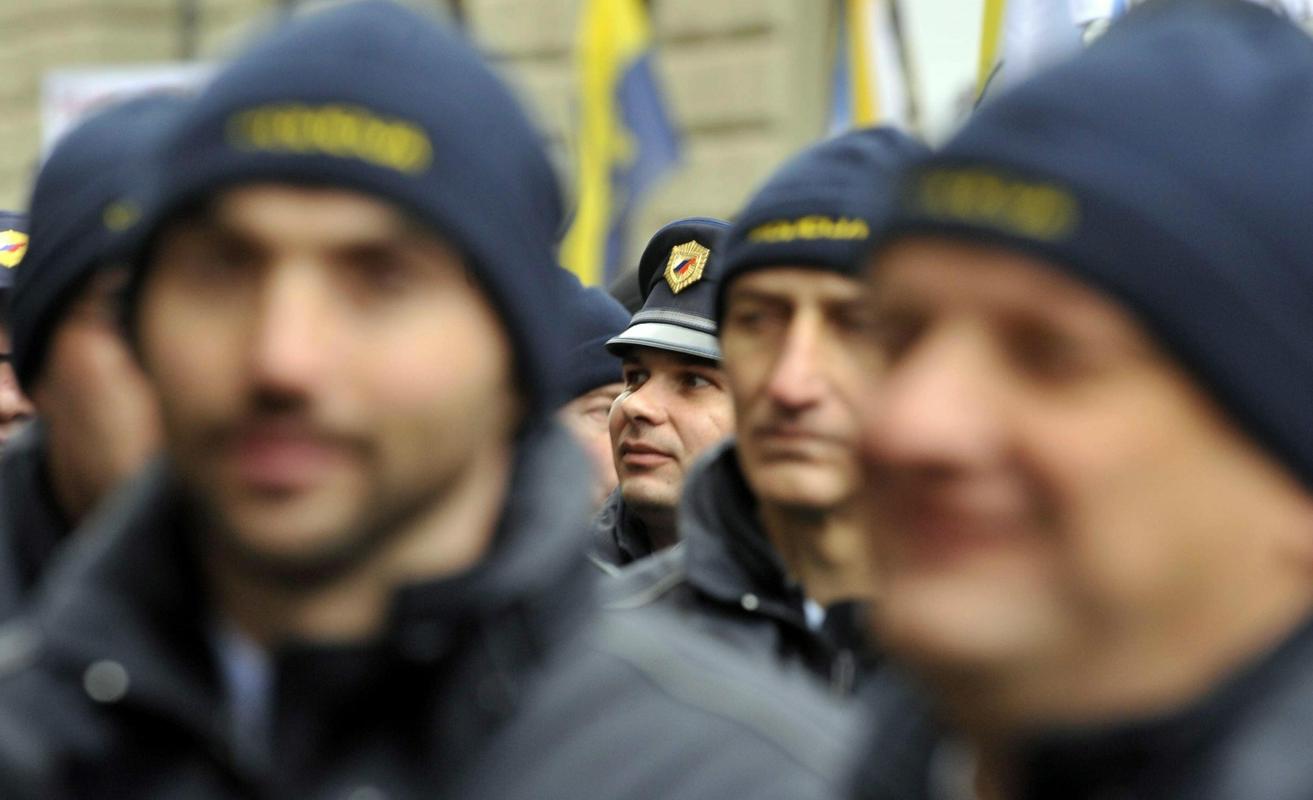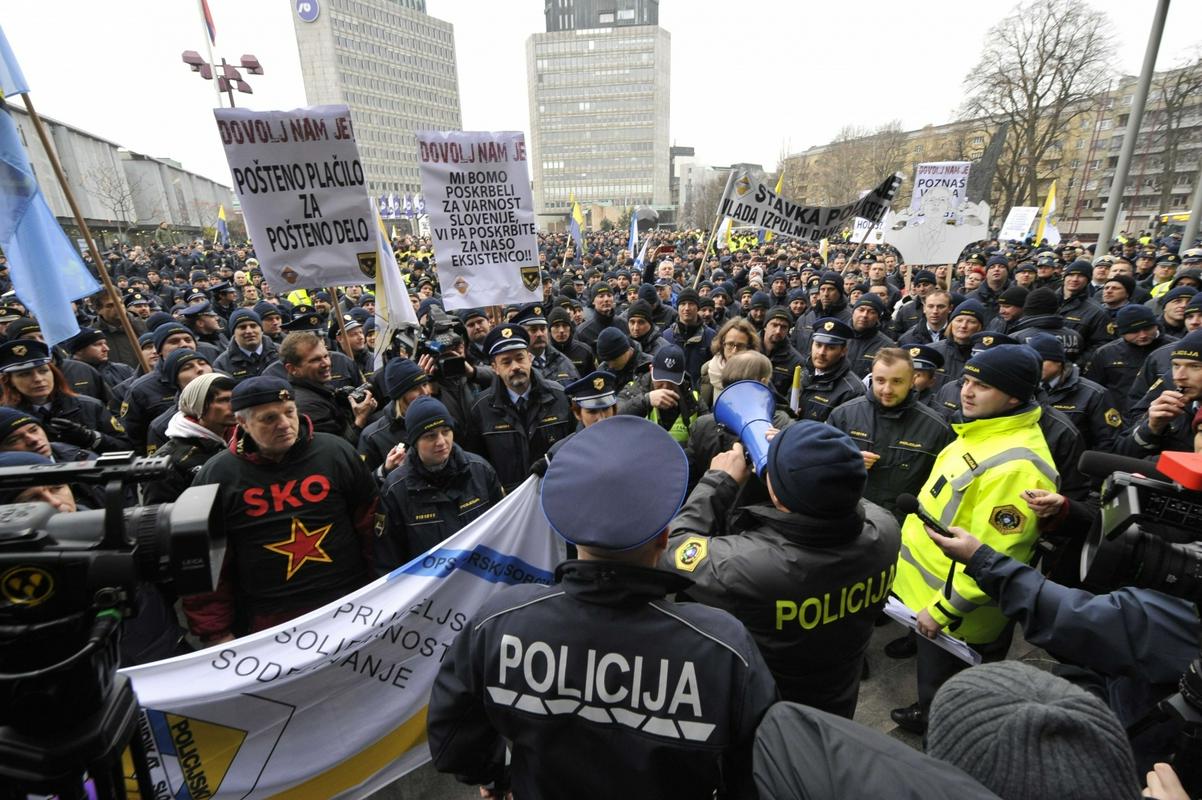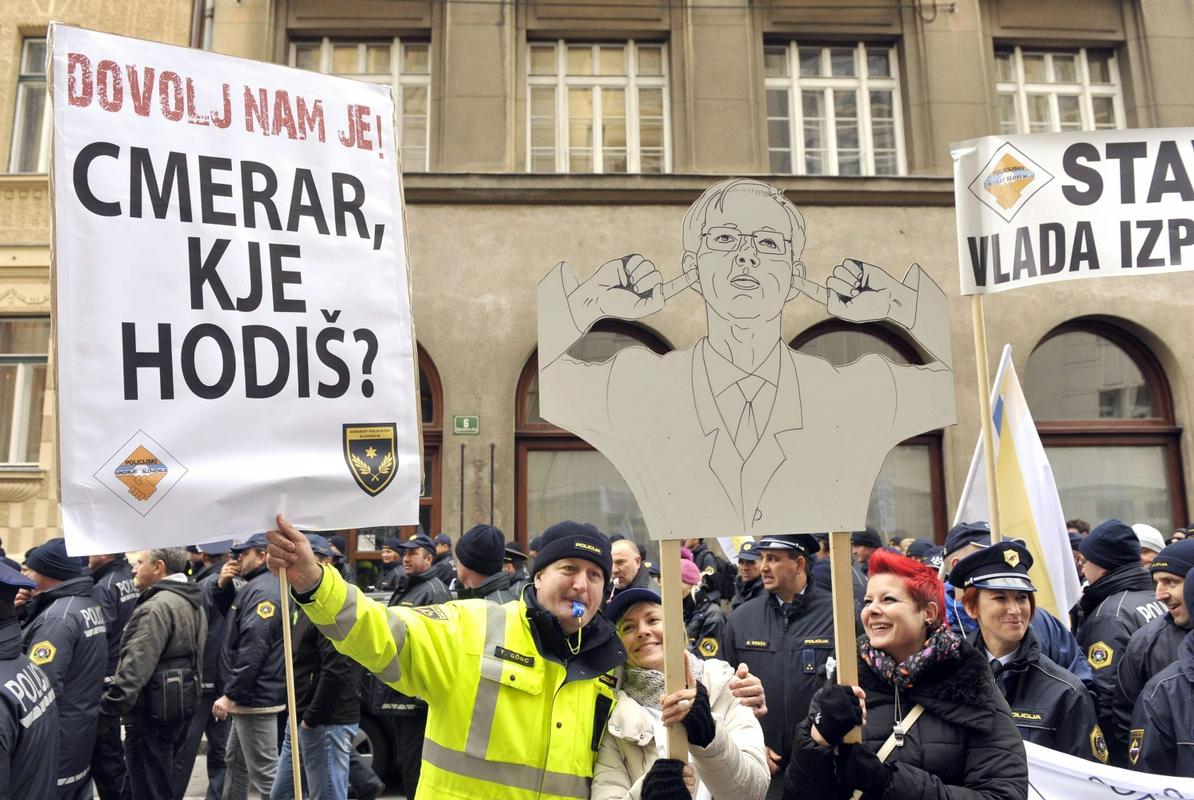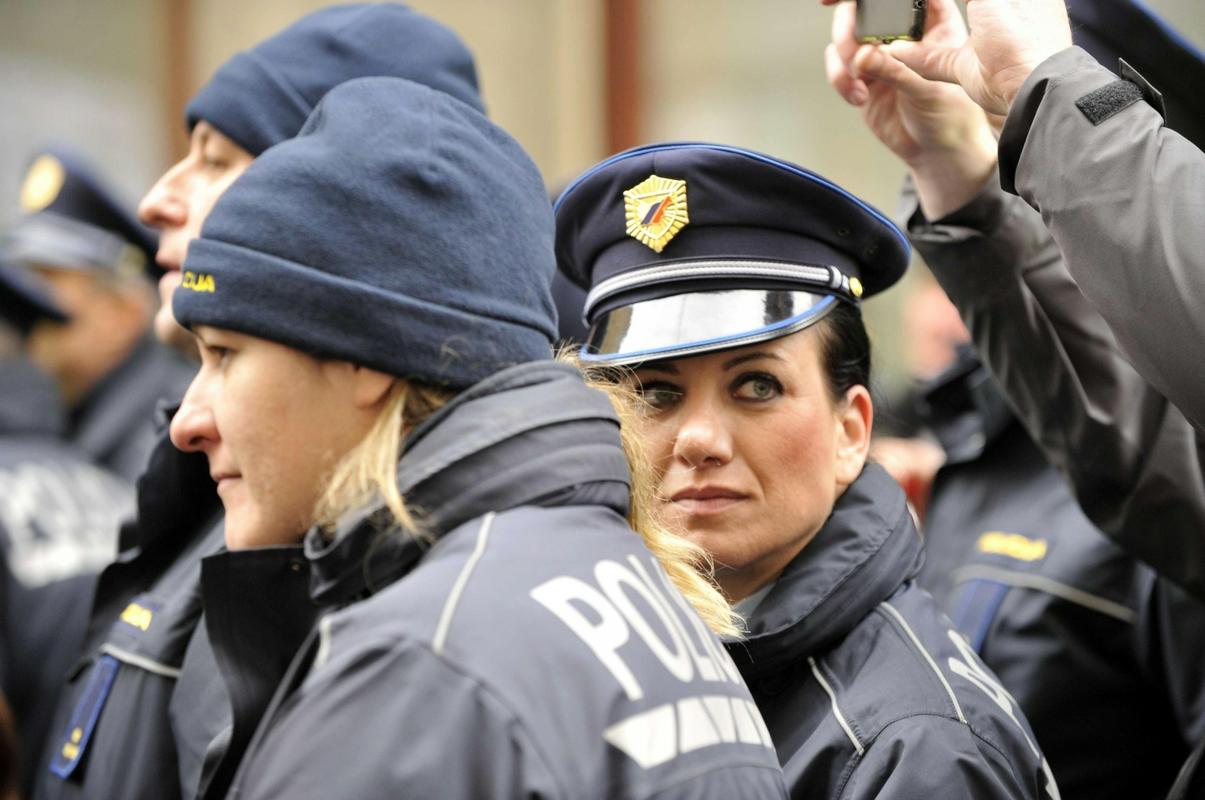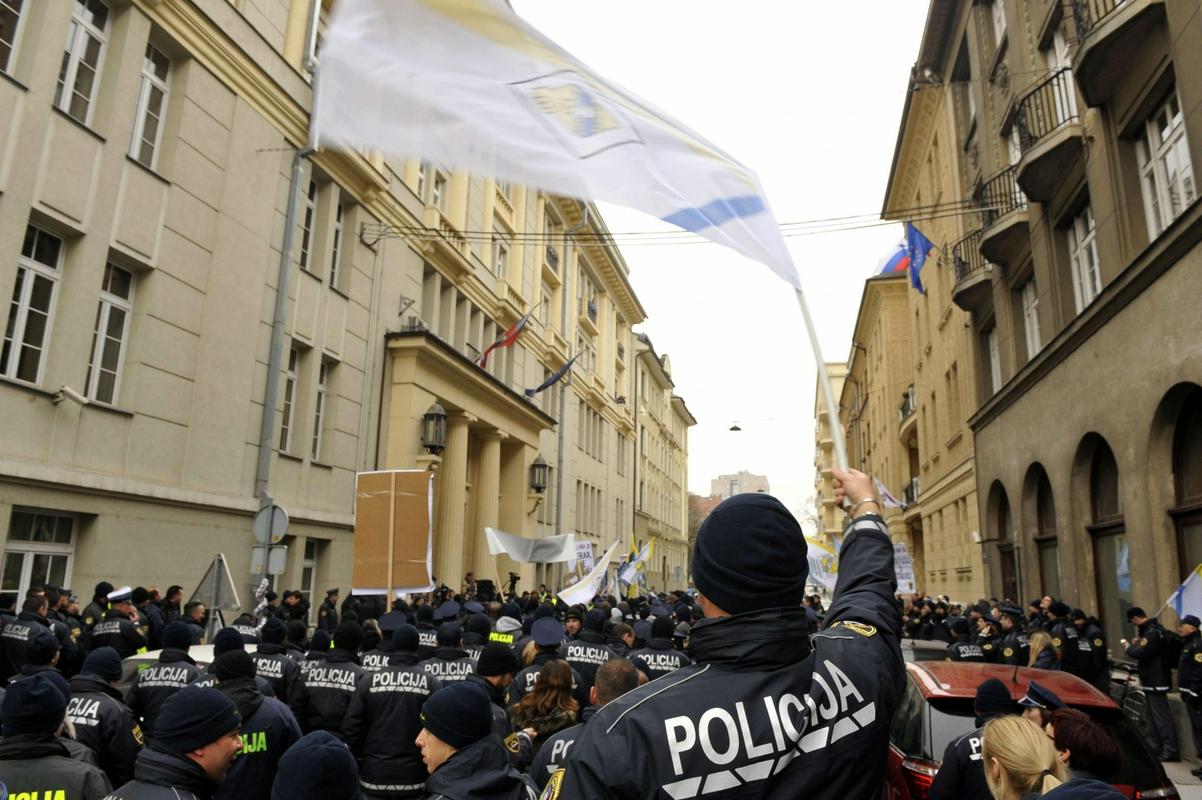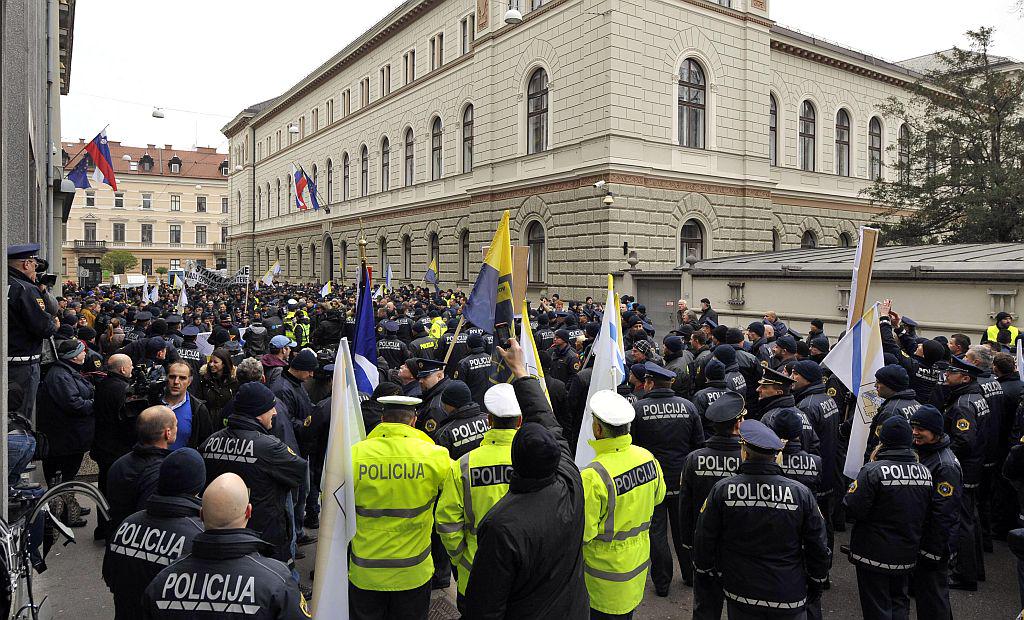
Approximately 3,000 policemen gathered at the rally in front of the government palace, but no representative of the government responded to their invitation. Loud whistling accompanied the handing over of an album containing photos by which the employees of the Police and the Ministry of Labour expressed their support with the action »We are the Union as well«. The police strike will be one of the topics of the extended summit meeting of the coalition scheduled for Sunday.
By the protest rally the policemen wish to confirm their determination and unity in their endeavours to achieve fulfilment of obligations previously taken by former governments, the president of the Police Trade Union Radivoj Uroševič explained before the beginning of the rally. These obligations include the increase of the salaries by 35%, and payment of excessive hours. The policemen also demand security at work, and equipment which will make safe work possible.
At reading of promises given by former governments the president of the PSS union said: "We are not ashamed of wearing our uniforms, but we feel shame when we look at our payslips." The president of the SPS Union Zoran Petrovič addressed the government: "The government should feel no fear while we are hear; they should fear the moment when we are gone."
Bruselj has had enough
Not being received by any representative of the government while in front of the government palace, the policemen headed towards the National Assembly, where they were received by Brglez. After the meeting he warned that the dispute couldn't be solved on the street, nor through media, but "mostly through dialogue – both sides should sit at the table, address each other respectfully and establish what could be done within the given framework". "With the given framework is of course presumed also everything that was done by the former governments in the name of this state," he elaborated.
Uroševič said that they had explained to Brglez the problems they were facing mainly during negotiation procedure with the government negotiating group. According to him, Brglez had understood where the problems were, and had promised to do everything within his power to reopen the negotiations.
He said they had every intention to insist on strike demands, as there was no answer claiming their demands were exaggerated, or that they demanded what they were not entitled to, or something that had not been agreed upon previously. He also said that they had received a memo from the European Commission explaining that the EC had no authority to interfere in such matters, but considered that things had gone too far.
L. L., A. Č., T. H.
Translated by G. K.




















































